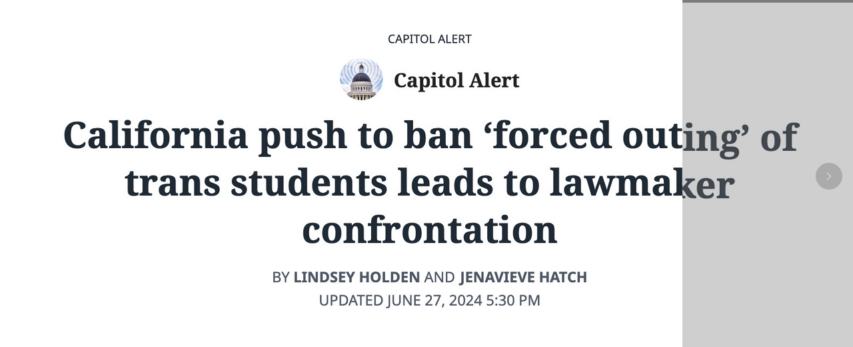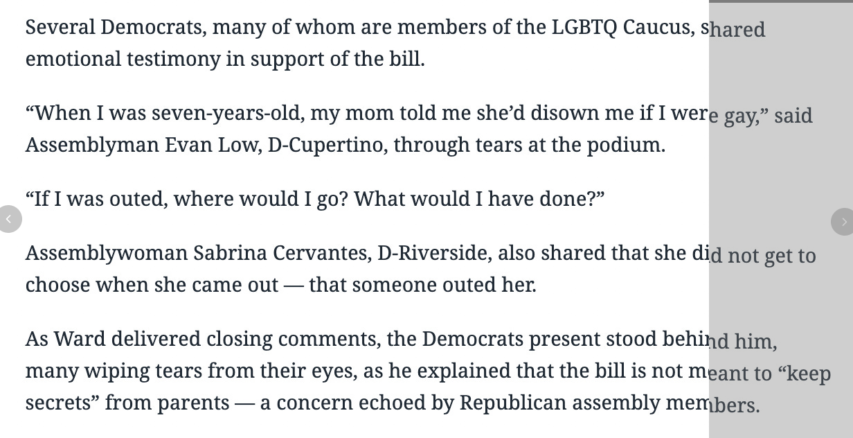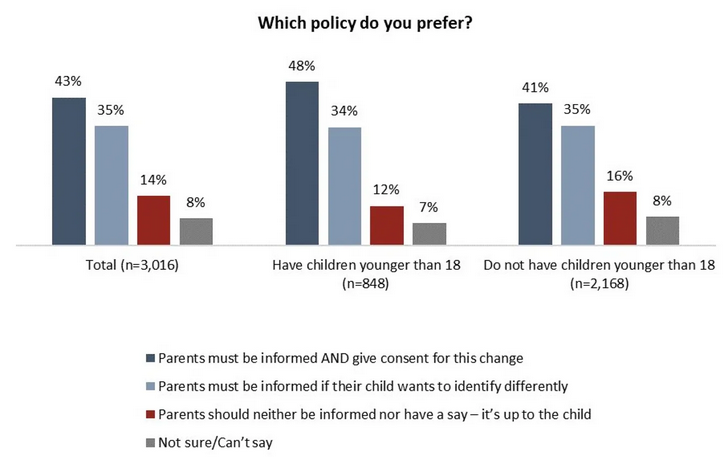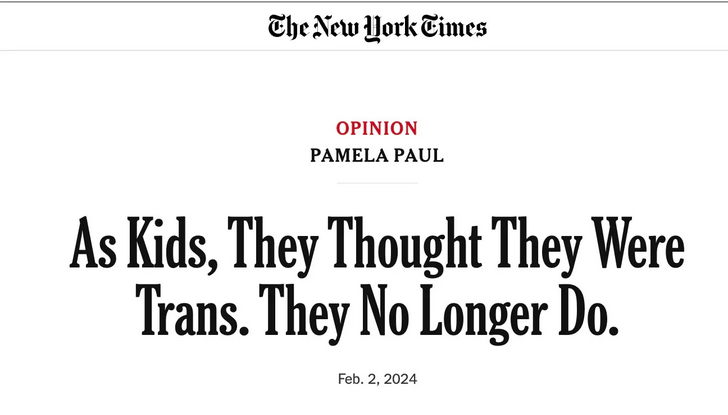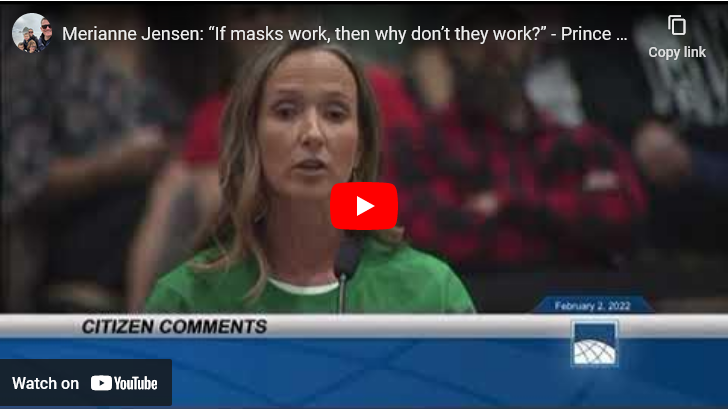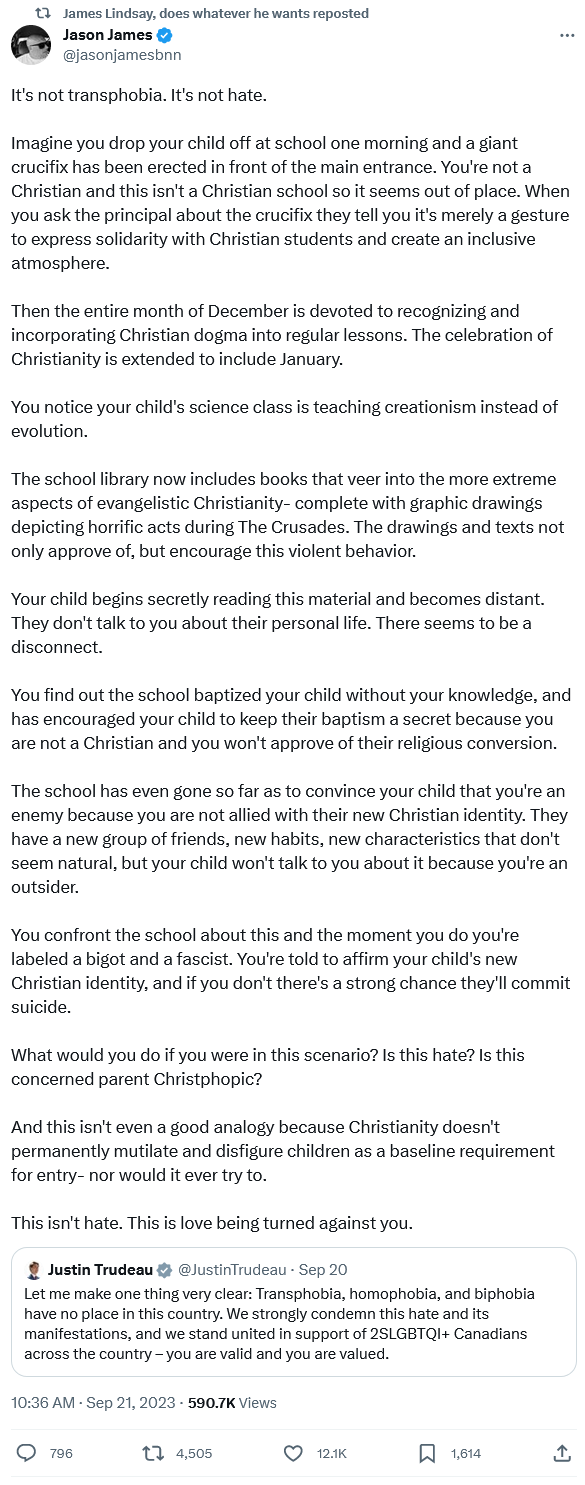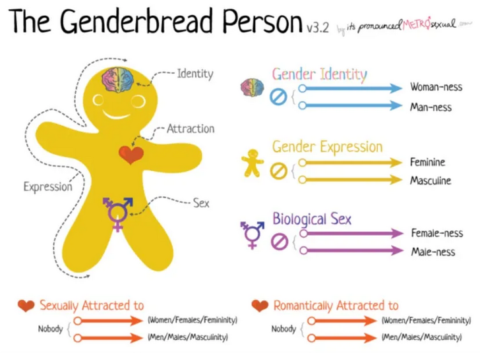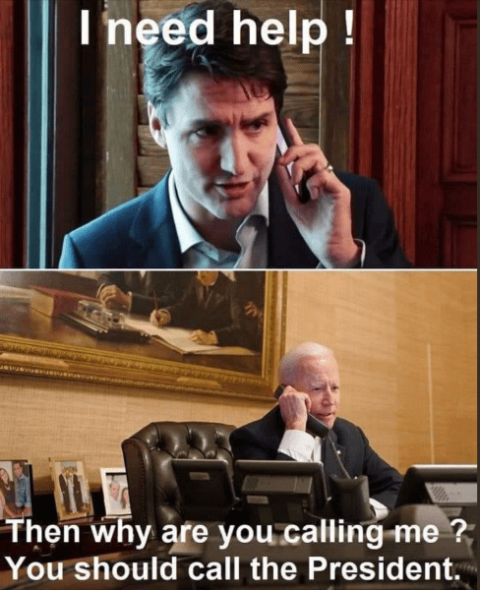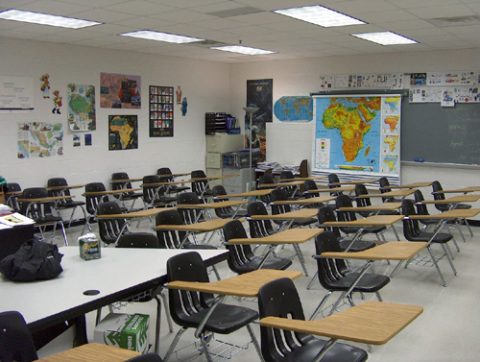“So how does it feel to be a human being now?” That wasn’t the question I expected to get from my aunt, the first time I saw her after my oldest kid was born. For starters she was a feminist, a prominent academic1 with several books to her name, and somebody who’d always struck me as mercilessly unsentimental. “Do you get it now?” she pressed on. “Before this your life was in shadow, it was fake. Now you’re in the sunlight, now it means something.”
She had kids, so despite having some ideological resistance to getting it, she got it. I got it too. It’s hard to describe what “it” is if you haven’t gotten it, but I’ll try to explain. The moment I first held my child, I had a vision of every human being who had ever done the same. I stood paralyzed, rooted to the spot while before my eyes a whole field of ancestors stretched back into the forgotten past, each cradling a baby just like I was doing. What was I without them? Nothing at all. A cosmic joke, a fluke, or a random collection of atoms. But with them, I was one stage of a process, a chapter of a story.
And not only that, but I was also no longer alone. It had always seemed to me that the problem of intersubjectivity could never be conquered, that between minds there yawned an unbridgeable epistemic chasm. Yet here was an experience that I shared with countless others from the most varied places and times, an experience I shared with emperors and with slaves. André Maurois once said: “Without a family, man, alone in the world, trembles with the cold”. I had always thought he meant this in a practical, or perhaps an emotional sense, but I now realized it was even truer cosmically. I had, as my aunt said, become a human being.
I didn’t just see the past. In that moment, the future also resolved itself into dreadful clarity. I had always known intellectually that someday I would die, and that the world would continue mostly as it had, but I never really believed it. Anything beyond the horizon delimited by my lifetime had been hazy and indistinct. Not anymore. Now I regarded the newborn squirming in my arms, and knew with absolute certainty that if things went well this child would bury me, and then continue living. Suddenly the far-future mattered, I had skin in the game now. I was no longer a temporal provincial, past and future both had an immediate and urgent reality, and I knew that I would never think the same way about them again.
John Psmith, “REVIEW: The Children of Men by P.D. James”, Mr. and Mrs. Psmith’s Bookshelf, 2023-04-17.
1. This was in the days before cancellation, I’ve often wondered since then whether she would have allowed herself to think the thought today.
2. It also caused me to wonder whether people without living descendants should be permitted any political representation at all.
March 29, 2025
QotD: Becoming a human being
December 12, 2024
The dispiriting rise of the “kidult”
Freya India explains the need for modern parents to re-embrace some of the more traditional duties of parents in raising children:
It’s pretty much accepted as fact that parents today are overprotective. We worry about helicopter parenting, and the coddling of Gen Z. But I don’t think that’s the full story. Parents aren’t protective enough.
Or at least, what parents are protective about has changed. They are overprotective about physical safety, terrified of accidents and injuries. But are they protective by giving guidance? Involved in their children’s character development? Protective by raising boys to be respectful, by guiding girls away from bad influences? Protective by showing children how to behave, by being an example?
As far as I can see many parents today are overprotective but also strangely permissive. They hesitate to give advice or get involved, afraid of seeming controlling or outdated. They obsess over protecting their children physically, but have little interest in guiding them morally. They care more about their children’s safety than their character. Protective parenting once meant caring about who your daughter dated, the decisions she made, and guiding her in a good direction. Now it just means preventing injury. And so children today are deprived of the most fundamental protection: the passing down of morals, principles, and a framework for life.
One obvious example of this is that adults act like children now. They talk like teenagers. They use the same social media platforms, play the same video games, listen to the same music. Our world moves too rapidly to retain any wisdom, denying parents the chance to pass anything down or be taken seriously, so they try to keep up with kids, who know more about the world than they do. Fathers are “girl dads” who get told what to think. Mothers are best friends to gossip with. The difference between childhood and adulthood is disappearing, and with it, parental protection.
Beyond that, too, there’s this broader cultural message that adults should focus on their own autonomy and self-actualisation. This very modern belief that a good life means maximum freedom, with as little discomfort and constraint as possible, the way children think. Now nothing should hold adults back. They have a right to feel good, at all times. They stopped being role models of responsibility and became vessels of the only culture left, a therapeutic culture, where it’s only acceptable to be protective of one thing, your own mental health and happiness. Listen to the way adults judge decisions now, how they justify themselves. Parents are celebrated for leaving their families because they were vaguely unhappy or felt they needed to find themselves, even at the expense of their children’s security. Adults talk about finding themselves as much as teenagers do. Parents complain online about the “emotional labour” of caring for family, or express regret for even having children because they got in the way of their goals. Once growing up meant sacrificing for family, giving up some of yourself, that was an honour, that was a privilege, and in that sacrifice you found actual fulfilment, broke free from yourself, moved on from adolescent anxieties, and there, then, you became an adult.
But slowly, without thinking, we became suspicious of adulthood. We debunked every marker and milestone, from marriage to children all the way to adulthood itself. Now we aren’t just refusing to grow up but rejecting the very concept of it. Adulthood does not exist, apparently. It’s a scam, a lie, a myth. Adulthood is a marketing ploy, we say, while wearing Harry Potter merch and going to Disneyland. Adulthood is a performance, apparently, that’s going out of style. “There is nothing, there is nobody which/who would really justify the claim ‘you have to grow up’,” seems to be the sentiment. “For whom? for what?”
July 28, 2024
J.D. Vance is an ideological extremist who has pushed an idea also supported by … Canadian deputy PM Chrystia Freeland
There’s much viewing-with-alarm and pearl-clutching going on over some of J.D. Vance’s more outré notions floated before he became Trump’s running mate:
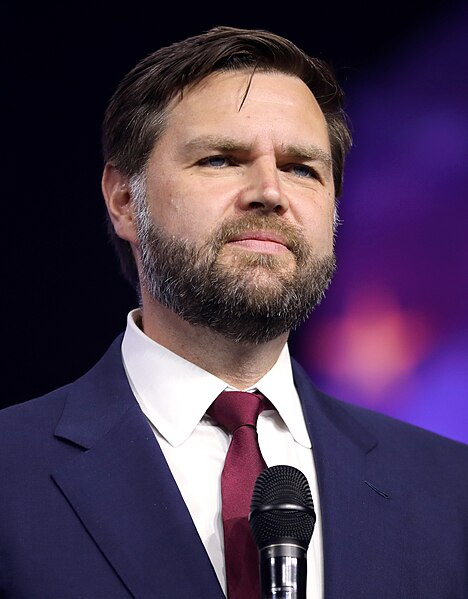
U.S. Senator J.D. Vance speaking with attendees at The People’s Convention at Huntington Place in Detroit, Michigan, 16 June, 2024.
Detail of a photo by Gage Skidmore via Wikimedia Commons.
One of the amusing features of this week’s U.S. election turbulence has been sudden media scrutiny of Ohio Republican Senator J.D. Vance, a former author and pundit newly named as Donald Trump’s running mate. Readers will know I’m a sadistic student of electoral reform crusades, and in 2021 Vance advocated for one of the myriad of utopian ideas that has never quite reached prime time: parents should be given extra votes that they can exercise on behalf of their minor children.
[…]
Critics of Vance are screaming about the sacred principle of “one person, one vote” — but of course the centrists and liberals who have toyed with the same idea support it precisely because children are persons who deserve political representation. (They would be represented second-hand by their parents until the age of majority, but us adults are all represented that way in democratic decision-making now, right?) Earlier this week Reason magazine published a short excerpt from a pro-Demeny paper by two American law professors with strong conservative, originalist credentials: there isn’t all that much daylight between their arguments and Corak’s.
Are the arguments actually any good? Some of them seem circumstantial or even aesthetic. We’re in a transitory era of gerontocracy because of a baby boom that happened eighty years ago, and nobody under 70, whatever their ideology, likes this universal predicament much. But on the grounds of revealed preference, the lack of actual real-world Demeny experiments is a big problem.
If we want the proxy votes to go to custodial parents who are involved with a real child and conscious of its particular interests, you’re suddenly talking about integrating election systems with family law. I.e., an unfathomable technical nightmare. But assigning control of the extra child votes automatically to biological parents, including deadbeats and those who have surrendered children to adoptees or foster families, seems like a non-starter. (And would also be an unfathomable technical nightmare.)
You can say that the democratic principle is more important than the mere design details of a child-voting system, and this is the kind of thing election reformers say all the time — but would you book a seat on an airplane that was built on aerodynamic principles with no attention to detail?
June 30, 2024
California’s politics are so weird that Justin Trudeau is frantically taking notes
Chris Bray pays attention to California politics … and we should all pray for his long term mental health: that place is insane!
What’s happening in California isn’t politics in any conventional sense. No debate is underway, and no policy choices are being hashed out. We’re in the land beyond. In Our Democracy™, declarations are made, and then they are to be received in a spirit of quiet submission. Your failure to submit is disallowed, and the reason it’s been disallowed is that it’s been disallowed. Were it allowed, it would not be disallowed, but it is, in fact, disallowed, so therefore it is not allowed, you see? All “political” discussion is a circle, eating its own tail. I’ve been trying to figure out how to explain this, but the Sacramento Bee just did it for me. (Paywall-evading version here.)
The Bee is explaining — or “explaining” — what happened on the floor of the state Assembly yesterday, when a Republican was not permitted to argue against a bill, and a Democrat stood up to threaten him for trying. I encourage you to read the whole self-refuting thing. What happened, it turns out, is that the Republican was preventing debate by engaging in debate, which meant that he had to be silenced and threatened so debate could continue, which required that no one express opposing views, which is an act of anti-debate aggression. Debate is agreement, and not agreeing is preventing debate.
The “forced outing” debate was a discussion about AB 1955, which proposes to forbid schools to inform parents of discussions between children and school officials about sexual orientation and sexual behavior. It’s important that parents not be told about sexually themed discussions happening between children and the adults in their schools, because not telling mommy and daddy about sexual discussions is being safe and warm. But watch the casual turn of logic in the last paragraph of this screenshot:
- Evan Low said the bill is important because it’s good that parents not be told, and the bill makes sure parents aren’t told.
- Sabrina Cervantes said she didn’t have this bill when she was young, which would have forbidden telling, so someone told.
- Democrats explained that the bill is not meant to keep secrets from parents.
See, AB 1955 isn’t about keeping secrets from parents — it’s about not allowing schools to tell parents. Not being allowed to tell parents is different than keeping secrets from parents. The story doesn’t go on to explain the distinction between keeping secrets and not telling, but under Jacobin cultural rules, the distinction is that shut up. The distinction is presumptive, and so doesn’t require explanation.
Now, here’s the way the Bee characterizes Assemblyman Bill Essayli’s arguments during the debate that he derailed by not agreeing:
Essayli has exhibited a consistent pattern of publicly disparaging advocacy groups and fellow lawmakers in an attempt to garner attention for conservative causes. On Thursday, he interrupted colleagues’ testimony and expressed frustration over Wood cutting his microphone and shutting down his comments when they veered away from AB 1955 and toward the issue of forced outing, in general.
His comments about the forced outing bill weren’t about the bill — they were about forced outing. What a bastard! Mister Speaker, he’s not debating the highway funding bill, he’s debating highway funding. Again, why does this distinction make sense? Because shut up. It makes sense declaratively: X is true because they said X.
And Essayli has a “consistent pattern” of saying disparaging things, which the Bee knows through mindreading is a maneuver to “garner attention” rather than an attempt to express his views. He disagreed, which is a very cynical and manipulative thing to do during a debate. He has a pattern of it!
And also Essayli is so rude that he interrupted colleagues when they spoke, and then had the nerve to object when his microphone was turned off. It’s rude to stop someone from speaking, and it’s rude to object to being stopped from speaking. You should never interrupt people, and you should always allow other people to interrupt you. They’re playing partisan Calvinball under the dome, and all moves lose.
February 4, 2024
“[L]et’s face it head-on: you’re a social and political outlier, a dangerous extremist”
You, yes you are exactly the kind of dangerous extremist that mature and sensible journalists at all the right media outlets have been warning us about for years:
You’re very weird.
In fact, let’s face it head-on: you’re a social and political outlier, a dangerous extremist. Your views put you firmly on the fringe, and that fringe is becoming a real problem. For example, the Premier of Alberta, Danielle Smith, has just embraced a bunch of radical fringe policies about parent notification and consent regarding schools and transgender children, simultaneously limiting the ability of young children to have their bodies medically altered to match their declared gender — and some pretty disturbing people are supporting this crazy stuff. Look how appalled normal Canadians are by these extremist maneuvers to keep parents involved in the lives of LGBT children:
See the whole poll here, if you can stand the disgust from seeing extremist material, or see a detailed report on a poll of Californians that offers similar results.
Fortunately, the responsible mainstream leaders of the Liberal Party and NDP are standing strong with the 14% in the majority who want parents out of the lives of transgender children, rejecting the fringe views of the 78% who live at the extremist edges.
At the same time, the New York Times has just published a remarkable opinion piece on the growing concern among longtime transgender advocates, including transgendered clinicians, about the casual and rushed process by which American pediatric gender clinics are pushing children into gender transition. The essay centers on detransitioners, trans youth who change their minds and accept their biological sex.
This being the New York Times, the author is compelled to mention the true danger: “The real threat to transgender people comes from Republicans who wish to deny them rights and protections.” Ahh, but watch what comes next:
But the doctrinal rigidity of the progressive wing of the Democratic Party is disappointing, frustrating and counterproductive.
“I was always a liberal Democrat,” one woman whose son desisted after social transition and hormone therapy told me. “Now I feel politically homeless.”
She noted that the Biden administration has “unequivocally” supported gender-affirming care for minors, in cases in which it deems it “medically appropriate and necessary.” Rachel Levine, the assistant secretary for health at the U.S. Department of Health and Human Services, told NPR in 2022 that “there is no argument among medical professionals — pediatricians, pediatric endocrinologists, adolescent medicine physicians, adolescent psychiatrists, psychologists, et cetera — about the value and the importance of gender-affirming care.”
Democrats are doctrinally rigid, and a top health official in the Biden administration says proudly that there is no debate. See, everyone believes the same thing, except mean Republicans, but that’s also now understood to be a sign of excessive ideological rigidity. Then the same piece in the Times also says a whole bunch of things like this:
Studies show that around eight in 10 cases of childhood gender dysphoria resolve themselves by puberty and 30 percent of people on hormone therapy discontinue its use within four years, though the effects, including infertility, are often irreversible.
I’ve removed the links from the quoted paragraphs, because they don’t work well after cutting and pasting, but you can find them all at the link to the non-paywalled opinion piece.
Well, I guess the secret’s out:
December 1, 2023
“I considered shopping a proposal for an anti-helicopter parenting book called Your Kid Sucks, but for some strange reason my agent dissuaded me”
Freddie deBoer on the modern phenomenon of “helicopter parenting”:

Collapse in childhood freedom – Graphic showing the diminishing “free ranges” of each generation of an English family.
For the New York Times, Jessica Grose details how new online grading systems allow parents to track the progress of their children not from year to year, semester to semester, report card to report card, but week to week or even day by day. The results are depressingly predictable, in today’s parenting environment. There’s stress for students and teachers alike, a collapse in interest in learning in and of itself, an adversarial relationship between parents and teachers, and the rise of “hyperchecking”, where parents complain about each and every single grade that isn’t an A. The piece is about K-12, but Grose notes that parents are increasingly seeking access to college online gradebooks, which seems crazy to me; as someone who’s taught a lot of college classes, the idea of someone constantly monitoring a student’s grade with the mindset of a litigious lawyer sounds awful. But then again, perhaps I shouldn’t be surprised. Here’s a piece about helicopter parenting extending into the college years to the extent that the parents are arranging social calendars. Of their college-age children.
I’ve been thinking about these issues for some time — I considered shopping a proposal for an anti-helicopter parenting book called Your Kid Sucks, but for some strange reason my agent dissuaded me — and what I can’t stop wondering is why parents don’t stop doing this stuff for the good of their kids themselves. There are social and philosophical critiques to be made of helicopter parenting, some very good ones. But we never need to wonder why people choose to pursue selfish interests over social or philosophical ones. What consistently surprises me is that parents keep puttering along in the clouds above their kids, binoculars in hand, when there seem to be really compelling arguments against doing that for reasons that are completely aligned with the selfish interests of the kids. I get ignoring social responsibility for the sake of your kid; it’s hard to understand ignoring what’s best for your kid for the sake of your kid.
There’s the social case to be made against helicopter parenting, of course. If you wanted to define the essential moral project of human beings in the broadest terms possible, you could do worse than “put others before self”. Aggressive parenting allows people to juke this basic logic — parents who act as though their child’s best interest is the only important criterion are, in a literal sense, putting someone else before themselves. “Hey, I may be disadvantaging already-disadvantaged kids with my hyperactive parenting, but I’m doing it for a greater cause than myself.” And the intrinsic (genetic) dedication to the good of one’s child obliterates the broader social concerns once freed from the guilt of traditional for-myself selfishness. But hyper-parenting still reflects selfishness, putting your own kin above the interest of everyone else, especially in cases where the harm done to society is a lot bigger than the benefit to your child. Academic malfeasance like the Varsity Blues scandal has obvious negative social consequences, for example, while those specific kids faced only going to slightly less competitive or desirable schools had there been no fraud in their applications. Less directly illicit behavior, like grade grubbing — which, among other things, inevitably benefits the students with the parents who are the most aggressive and who hold the most social capital — are a greyer area, but ultimately do more to unbalance an already-unbalanced system. If these parents were confronted with the opportunity to do this for themselves, I genuinely think that most of them would decline, out of a sense of social obligation. But once it’s “for my kid”, it’s no holds barred.
I think absolutely all parenting contains a little narcissism, and that’s OK; it’s probably a part of our genetic endowment that helps compel parents to nurture their children, and anyway parenting is a tough job that we shouldn’t expect people to perform with no sense of self-satisfaction. But it is one of those quirks of our social order that the parents who are the most politically progressive, who most ardently advocate for a society that serves all of our people, are often also the most unapologetic about putting their thumb on the scale for their own children. Plus, the sort of second-order selfishness of parenting allows for the sidestepping of more philosophical objections to helicopter parenting. These objections are less about the social good of others and more about the content of our individual characters. These include personal values such as the notion that we just should, as human beings, be able to live with a degree of independence in youth; that we just should experience hardship and the consequences of our actions to better appreciate what it means to be alive; that we just should, as human beings, secure our own interests to whatever degree we’re able, without help from above, including in school; that we just should operate as though we are but one in a broad collection of human beings, all of whom matter as much as we do, for our own spiritual good. The thing about these personal values is that they’re only motivating if they are indeed personal — that is, these might sway an individual, but not even occur to their parents, and in our system parents have remarkable ability to obstruct the agency of their kids. They can do the dirty work the kids might not do for themselves.
October 9, 2023
“Wildly popular public sentiment is disorder, and has to be restrained”
Chris Bray outlines one of the many (many) ways that elected officials are insulating themselves from the voters who elected them to ensure that they only hear what they want to hear from the public … and as little of it as they can get away with:
Wildly popular public sentiment is disorder, and has to be restrained. So here, let’s start with something vital and interesting, and then work our way through the process a local government is using to kill it. As always, the point about this local story isn’t just the local story, since versions of this are happening all over the country (and with federal assistance).
Early last year, an angry Virginia mom spoke to the Prince William County school board, blasting mask mandates in schools. Her fiery three-minute speech went viral, until YouTube, which now seems to mostly exist to prevent discussion, killed it:
It’s back, in a less-watched version that YouTube hasn’t gotten around to cancelling yet:
Here’s a version on Rumble, if you’d rather watch it there, but Substack doesn’t embed Rumble video.
The second thing to notice in that video, after you notice the clarity and strength of Merianne Jensen’s comments, is the response: an enormous audience of parents shouting and cheering in support as another parent sharply criticizes school district policy. The public is present for a government meeting, and the public is engaged. Citizens are participating, enthusiastically and in large numbers, which is supposed to be a thing we regard as an ideal.
[…]
Public comment is limited to one hour, full stop, no matter how many people wish to speak, and no matter how urgent a controversy before the board might be. The public — the entire public — gets an hour. But, second, that hour is alloted through an application process in which people who wish to speak to the school board fill out an online form that a clerk then evaluates and processes, deciding whether or not a request to speak will be granted. Detailed contact information is required before the school district will consider your request to speak, and national organizations and other outsiders have no right to speak at all, since public comment is limited to verified residents of the county. The form is a masterpiece of passive-aggressive nudging, communicating with great clarity that your desire to offer public comment is merely being tolerated. Read this carefully, because in a few minutes we’re going to get to the pernicious way this system is now being gamed:
This form does NOT confirm your request to be added to the list of speakers for Citizen Comment Time. You will receive a separate email indicating the status of your request. As a reminder, speakers are signed up to speak on a first-come, first-served basis.
Thank you again for your interest.
Citizens may sign up to be placed on the list of speakers for the citizen comment period starting at 8:00 a.m. on the Saturday immediately preceding the School Board meeting at which the citizen wishes to speak. Requests received prior to 8:00 a.m. on the Saturday immediately preceding the School Board meeting will not be honored. Speakers will be signed up on a first-come, first-served basis, ending at noon on the day of the meeting. The sign-up list will close once the number of total speakers who have signed up reaches twenty and there will be no sign-up thereafter, nor at the meeting.
That last sentence will become important: twenty commenters are signed up in advance, in the order in which they apply, and then the list for public comment is closed, the end. Can you see where this is going?
Before we get there, I’ll just note that a more detailed board policy on comments, available here, adds that the board chairman can end a public comment session, and ask school district security to remove speakers, if a commenter wanders into “inappropriate topics” or a tone the board regards as uncivil. You can feel the spontaneity and openness being drained.
September 23, 2023
“Even before it began, the protest was denounced as a hatefest”
Tasha Kheiriddin on the parents’ 1 Million March 4 Children protest against teaching LGBT issues to school children and the counter-protest by teachers, unions, and a disturbing number of sitting politicians:
On Wednesday, thousands of parents and supporters took to the streets across Canada for the 1 Million March 4 Children protest, chanting “leave the kids alone.” They were protesting the teaching of “gender ideology” in schools, including lessons about gender identity, transgenderism and schools’ refusal to inform parents of their children’s use of preferred pronouns.
Even before it began, the protest was denounced as a hatefest. School boards sent letters to parents decrying the event. The Ontario Federation of Labour organized counter-protests with the slogan “Trans rights are workers’ rights.” NDP leader Jagmeet Singh stood on Parliament Hill, chanting, “Hey hey, ho ho, transphobia has got to go!” Prime Minister Justin Trudeau tweeted, “We strongly condemn this hate and its manifestations.”
Here’s something we can all agree on: there is no room for hate in schools. If a kid bullies another kid for any reason, including gender identity, they should be disciplined. But the counter-protestors go further: in their view, unless you actively instruct children about gender, sexuality and inclusiveness at an early age, it is you who is being hateful. There are no shades of grey: you are either a full-on supporter of drag story time or a transphobic bigot.
When it comes to gender identity, it is wrong for educators to dismiss all parental concerns as homophobia. Yes, there are some bigoted parents who teach their kids that being gay or trans is a sin. Some of them were in the crowd Wednesday.
But there are also many parents who are legitimately concerned that encouraging children to question their sexual identity at a very young age is confusing and inappropriate. We label movies PG-13 or higher when they contain sexuality and nudity. Why then introduce sexual identities such as aromantic (absence of romantic attraction) asexual (absence of sexual attraction), pansexual (attraction to any gender) or demisexual (attraction that requires an emotional bond) to grade school kids? And more importantly, why is this the purview of the school system at all?
On Twit-, er, I mean “X”, Jason James responded to a Justin Trudeau Xpost with this counterfactual:
September 4, 2023
“… the ‘Teachers should tell parents’ people outnumber the ‘Teachers must not tell parents’ folks by something like four-to-one”
In the free-to-cheapskates segment of The Line‘s weekly round-up post, they discuss the suddenly “brave” Conservative provincial premiers jumping onto a hot culture war topic on the side of the vast majority of Canadians:
New Brunswick now has Policy 713, that requires teachers or school officials to notify parents and obtain consent if a child younger than 16 wishes to change his or her name or pronouns. Saskatchewan has announced a similar proposal; Ontario is considering one, too.
The Line looks upon these proposals with extreme skepticism. To be frank, we wish the provinces weren’t doing this. We think it’s strategically misguided: every moment a Conservative spends defending “parental rights” is a moment in which they are not talking about highly salient economic issues that affect far more people. Further, we don’t trust their motives. Either they’ve decided to pick this fight because they thought parental consent was going to be a winner for them, or they simply felt pushed into it by the more excitable elements of their respective bases. (We assign a probability assessment of absolute zero to the notion that the leaders might be doing this out of moral conviction.)
So yeah, it’s cynical and exploitive policy, but gosh, is it ever popular policy, too. Polling shows it’s like 80-per-cent approval popular.
Because of course it is.
Again, we stress that we don’t support the imposition of sweeping legislation. Absent evidence of abuse or mismanagement, we think parental notification of social transition should be handled on a case-by-case basis. In the midst of a moral panic on trans issues, we’d prefer to keep politicians as far away from this third rail as possible, with long pointy sticks and cages if necessary.
However, we also recognize that cynicism cuts both ways. We have also borne witness this week to some hysterical rhetoric from those who seem to seriously believe that schools should be forbidden from sharing this information, if the minor in question so chooses.
These people are in the minority, as we suggested above. The polling shows that the “Teachers should tell parents” people outnumber the “Teachers must not tell parents” folks by something like four-to-one. This is the kind of lopsided result you almost never see on contentious policy issues — the numbers are what we would expect if we asked Canadians “Is ice cream tasty?” or “Do you enjoy cuddling a puppy?” And of course this is so. Parents are, generally speaking, not going to have a whole lot of time for the suggestion that children will be better off if the state, at any level, adopts a policy of withholding information from them.
We don’t support what the conservative premiers are doing, because we think they’re doing it for cynical reasons, but we would absolutely oppose any policy that goes in the opposite direction. And the majority of the country — a massive supermajority — is onside with us on this one.
There are no easy answers here, because we do not dismiss the concerns raised by the minority. We absolutely agree and accept that there are going to be families and parents that may react badly, even dangerously, to their child changing their name or pronoun. But the answer isn’t to involve teachers and schools in a coverup; it’s to have policies in place that give any child that may fear for their safety all the help they need, including, if necessary, intervention. To this end, we would note that teachers are mandatory reporters — they must report a variety of issues (or concerns) because society has learned through tragedy and horror what happens when parents and other guardians are excluded from knowing details of their child’s life. If teachers have reasonable grounds to suspect abuse, mental health issues and more, they are legally required to inform authorities and families. Limiting their ability to inform parents would cut against this necessary and overdue progress. Further, we have already passed laws banning “conversion therapy.”
Your Line editors support the right of trans people to live lives of legal equality, safety and dignity, and we honestly believe that most Canadians would agree with us on that. We also note that the rising tide of trans activism has raised complicated concerns that exist at the edges of reasonable accommodation, and must necessarily raise thorny concerns about how we manage competing rights between disadvantaged people. Can minors consent to puberty blockers and cross-sex hormones? Is it fair to allow trans women who enjoy the permanent physical advantages bestowed by male puberty into female athletics? When should trans men be permitted in women’s prisons and shelters, if ever? These questions demand a thoughtful and nuanced response. They don’t disappear the moment someone screams “trans women are women!” and threatens to kill that bigoted TERF J.K. Rowling. They aren’t resolved by hysterics and warnings of suicide.
By staking out maximalist positions on the most difficult topics, and granting no ground for concession and compromise, trans-rights activists have polarized their own cause. Shouting down critics worked for a while, but the pendulum is now rapidly swinging back to the plumb line. Labelling every concerned parent a transphobe is tired and played out. It’s failing as a strategy of persuasion. Which brings us to the current moment; the place of four-to-one support for cynical policies proposed by conservative premiers. Keep it up, and we suspect it’ll be nine-to-one in short order.
Backlashes are rarely measured, sane, or logical, and we fear this one is already teasing out some very dark and long-repressed demons, even among people who once counted themselves allies of LGBTQ people and causes. We are seeing this backlash in a rise in hate crimes, growing counter-protests, and in a decline in support for LGBTQ people generally. And, yes, we are seeing it in in heavy-handed and misguided legislation both here and in the U.S. We aren’t arguing that any of this is justifiable; rather, we are merely noting that it has long been inevitable and predictable. We were warned.
One of the only real questions we have is how self-styled progressive parties and leaders are going to navigate trans issues when the population is very much not on their side. We talk a lot about how the conservatives are beholden to the most vocal minorities within their parties; but we fear that the progressives suffer the same fundamental problem.
We’d like to think that the Liberals and the NDP will handle trans issues maturely, responsibly and well. But we know better. They’ll go all in, setting everyone up for a very nasty confrontation that we think they’ll lose, and badly. Brace yourselves, friends.
August 15, 2023
“Babies are nature’s little smoke detectors”
Rob Henderson covers some evolutionary arguments on how “we” became who we are today, including some of the ways parents and babies interact:

“Crying Baby” by iamprince160812 is licensed under CC BY 2.0 .
Intriguingly, some researchers have suggested that infant crying is a signal of vigor that evolved to reduce the withdrawal of parental care.
The idea is that in the ancestral environment, inert, inanimate, lifeless infants were considered by parents to be physically weak or possibly in poor health and thus unlikely to survive. In contrast, being loud and relentlessly fussy demonstrated high energy, strong lungs, and good health. Indeed, infant crying is calorically costly, with a 13% increase in metabolic rate compared to resting.
Exhausted parent: “I’ve tried feeding you, changing you, holding you…What is it that you want?”
Crying baby: “To demonstrate to you how robust I am!”
This is likely why babies will often cry even when there is seemingly no immediate need, such as distress or hunger. Their unconscious, evolutionary aim is to ensure caregivers don’t neglect them or withdraw care or resources from them.
Of course, like most signals individuals send, babies don’t “know” they are doing this.
Infant crying also falls under the framework of error management theory. The idea is that it is more costly to under-react to potential dangers than overreact. In this case, it is better for a baby to be oversensitive and cry even when there is nothing wrong than to be under-reactive and not cry when something is wrong. A variation of this is the smoke detector principle.
A smoke detector produces a piercing, unmistaken alarm in the event of a fire. But it doesn’t actually detect fire — it detects smoke particles and activates upon the merest hint of potential danger. A false positive (e.g., alarm in response to burnt toast) is far more favorable than a false negative (failing to activate in response to flames). Thus these devices are calibrated to be annoyingly over-reactive.
Babies are nature’s little smoke detectors.
November 18, 2022
“There are no solutions. There are only trade-offs.”
Parenting babies and toddlers, as Jen Gerson can tell you in disturbingly graphic detail, requires a totally revamped view of what an acceptable level of hygiene and cleanliness might be compared to those blissful days pre-parenthood … and that was before Canada’s public healthcare system began sinking under the weight of the pandemic:

“Covid 19 Masks” by baldeaglebluff is licensed under CC BY-SA 2.0
Ask any parent of a small child right now and you’ll get much the same tale of woe. We’re in the trenches, man. The illnesses have been utterly relentless since school began. We’ve seen nothing like it before; it’s as if three years of sicknesses are being crammed into three months.
So while we’re stressed out, grumpy, and annoyed, we’re not surprised that the shelves are bare of basic children’ medications, and the hospitals are overwhelmed. This was all entirely predictable — and was, in fact, predicted.
That’s why Moore’s advice, to mask up in the Stage 4 biohazard that is my own home, was responded to with an instant eye roll. It was the type of well-intentioned advice that I completely discounted as out of touch and impractical — which is how we used to regard quite a lot of public health advice in the Before Times. “This is a very fine sentiment, but has no relationship to the world in which people actually live.”
Sorry, my little girl just coughed into my mouth.
Moore’s announcement felt like a trial balloon for the return of mask mandates in Ontario in the hope of offsetting the effects on pediatric ICUs, which are currently being overrun by sick children. (The government has thus far not imposed a mandate or even hinted that it may, but you know Ford and his sudden reversals.) Federal public-health officer Theresa Tam has already suggested we mask indoors — but has also stopped short of mandates.
I admit, seeing this from afar, I was struck by two entirely contradictory emotions, neither of them positive.
The first, as better articulated by one of my good friends and fellow mom-in-arms was: “Jesus, we shut down the entire world for two years to save the lives of the elderly, and now that the kids are getting sick, it’s like pulling teeth to get anyone to accept even the most moderate, least intrusive measure — masking.”
The other emotion, equally intense and angry, is the exact opposite of this sentiment: My daughter needs to build an immune system. She needs to be exposed to germs, bacteria, bugs and illnesses. That can’t be avoided. It can only be further delayed.
If the current wave of extraordinary pediatric illnesses is the entirely predictable result of three years of social isolation, lockdowns, school cancellations and, yes, masking, then how will more of any of this help matters in the long run? All we’ll be doing is spreading out the pain over a longer period of time. Non-Pharmaceutical Interventions are sometimes necessary, but truer words were never spoken than these: “There are no solutions. There are only trade-offs.”
Both of these sentiments are rooted in the same, bone-deep mommy anger. This pandemic, and our response to it, has revealed a profound intergenerational inequity that demands redress. Once again, our kids are paying the bills, literally, figuratively, and physically.
November 9, 2022
Liberal political fortunes ride “especially women in the suburbs of the Greater Toronto Area” … and those women are angry right now
In The Line, Ashley Csanady has some advice for Justin Trudeau in the lead-up to the next federal election that he really needs to pay attention to:
Poll after poll has told us the Liberals lost white male voters a long time ago, and their electoral fortunes, especially in Quebec and suburban Ontario, rely on women, especially women in the suburbs of the Greater Toronto Area. This isn’t to say dads and other caregivers aren’t angry. Families take many shapes and anyone with small people at home has faced the same indignities over the past nearly three years. However, politically and demographically, it’s the Ontario moms who are going to make or break the next election. And when folks are angry, it doesn’t matter who the incumbent is, they are wont to vote them out.
Nor is it not just about the children’s pain meds.
It’s about the fact we can’t find antibiotic eye drops over-the-counter either (a shortage one pharmacist told me is even worse than the one for pain and fever meds for the wee ones). Another shortage that means we must then turn to an already over-burdened health-care system to get a prescription for a medicine that may or may not be in stock.
Oh, and if that respiratory virus going around turns nasty, we aren’t even certain there will be a hospital bed for our babies when they need it most.
Then there is the infuriatingly slow roll-out of affordable childcare in this province. Parents once again caught between the feds and the province in a battle that may drag out the process so long that many expecting relief will see their kids off to junior kindergarten before it arrives.
Grocery bills are skyrocketing, and while I admit I’m privileged enough to absorb the eye-popping increases, so many families simply cannot. Imagine telling a picky toddler they can’t have their favourite snack because you can’t afford the crackers.
Now, Ontario moms had to deal with yet another disruption to their kids’ schooling, which threw their work lives into chaos once again. More disruptions are possible should bargaining fail again. This just after many women who left the workforce or took a step back from their careers during the pandemic were just getting back into the swing of things.
I made this point — that Ontario moms are angry and much of that anger is directed at political leaders, but I don’t expect it to fall on Ontario Doug Ford — on Twitter a couple weeks back. For this, I was “reminded” — more like chided — that many of these challenges are Mr. Ford’s fault. Or global challenges no logical person could blame the prime minister for. The partisans in my mentions were right on both counts. But here’s what they got wrong:
It doesn’t matter if I’m being “unfair” to Mr. Trudeau, because politics is unfair.
And as for Mr. Ford’s share of the blame, voters punish who’s up next at the ballot box, especially in a crisis. They had a chance to take out their rage on the PCs in June. They didn’t. So who does that leave up next?
November 4, 2022
Ontario parents brace for yet more school disruption as CUPE threatens a Friday walkout
Matt Gurney, writing in Toronto Life, recounts a fairly typical Ontario parent’s concerns at the latest stand-off between the Ontario government and the non-teaching educational workers represented by the Canadian Union of Public Employees (CUPE):
It’s one thing to watch the news as a journalist and wonder how to cover it. Over the last week or so, though, I’ve just been another parent wondering if my young kids are going to be out of school for an extended period. Again.
It’s all very familiar by now, of course. Can I shuffle my deadlines? Should we get rotating playdates going with neighbours so we can have some quiet in the house when we have an important Zoom call? Do we still have the number of that tutor we used during Covid, and should we call her again if this drags on? Anyway, there’s always the grandparents, right?
This is stress we don’t need — a kick in an already tender spot. I remind myself that, all things considered, others have it way worse: people on shift work, single parents, parents of kids with special needs, those for whom a missed shift means a missed rent payment or a skipped meal. But, even among the affluent and privileged, the frustration, the sense of weariness at more of this, is strong.
[…]
Let me repeat that: my son, now in the third grade, has never had a normal year of school. Preschool and JK? Sure. But then Covid struck mid-senior-kindergarten, in a year already disrupted by job actions from teachers during contract negotiations with the province. (Once the pandemic began, deals were quickly reached.) Schools closed and didn’t reopen. The next year, his first grade, was a complete fiasco, with schools opening and closing as the virus surged and waned. The second grade was better but still had a lot of shifting rules and a relatively brief shutdown after Christmas. This year was the first shot for my son to know a normal school year.
And there are thousands of other kids like him out there, each with a parent (or two) who worries that their child has already lost too much.
Don’t discount the guilt parents feel. We spent years telling our kids, “No, you can’t do this.” Denying them birthday parties, family trips, sports and activities, even just playdates. If you aren’t a parent and don’t understand why people might get so passionate about whether their kids stay in a classroom, don’t make the mistake of thinking it’s all about the lesson plan or just a desire to ship them off so that the house is quiet for a few hours. Those both matter, but the bigger concern for many is that we’re tired of saying no to our kids. We’re tired of telling them that they can’t do things. We’re tired of having things taken away from them.
We knew that measures to limit the spread of Covid were important. We went along, for the most part. We waited. We got our jabs. Many of us got our kids jabbed. In exchange, we want normalcy back. Not for us but for them.
The Ford government’s treatment of CUPE is undeniably heavy handed — probably on purpose, to send a signal to other unions. It’s also unnecessarily nasty. Ford could have struck a better deal with education workers, like imposing a short-term contract with a higher wage boost to help them ride out inflation, as I proposed weeks ago. That might have eased the concerns of parents out there who, though worried about their kids, don’t like Ford or what he’s doing.
I think Jen Gerson has it right here:
October 14, 2022
QotD: High school
Those of us on the back nine of our lives remember high school as a process of differential diagnosis. You try on a certain set of social roles to see which, if any, fit. You don’t go out for the baseball team because it’s the first step to making the Majors. Really, you might not even like playing baseball all that much. You go out for the baseball team because you want to be a Jock. If you make the team, you’re a Jock for a while, leading the Jock life and learning its lessons. If you don’t make the team, you go find something else — the Debate Club, heavy metal music, whatever — and learn the lessons those lifestyles teach.
You didn’t understand this back then, of course, but your parents did, and — crucially — your teachers did. If you wanted to be a Metalhead this semester, they’d treat you like a Metalhead, complete with the “Why are you wasting your potential (and ruining your ears) with that godawful noise?” They’d make a show of having a Very Serious Conversation with you about the dangers of drugs and satanism … knowing full well that you weren’t on drugs, weren’t sacrificing virgins to Moloch (if for no other reason than you didn’t actually know any girls), and would, in fact, come back as a clean-scrubbed Preppie after summer break your junior year.
The key word in “adolescent rebellion”, after all, is adolescent. All of that stuff was just practice. If it proceeded in the normal way, what going through all the permutations of high school identity taught you was:
- you’re a fairly normal person; and
- that’s ok.
In other words, you are not a collection of externals — clothes, music, hairstyles. You’re you. The externals can change, fairly radically — remember that one summer you broke your nose trying to be a skater? — but there’s a core in there that’s you. Which is great, because it means that you are just a person who takes customer service calls in a cubicle farm to pay the bills; they’re not going to put “Here lies Bill, a Customer Service Representative” on your tombstone.
Severian, “The Basic College Girl”, Rotten Chestnuts, 2019-07-24.
September 17, 2022
QotD: Parenting
Parenting is learning how to balance the desire to cheer your kids for raging against The Machine with accepting the fact that you are now, in fact, said Machine.
“It’s amazing that you’re strong enough to escape the crib I confine you to. Your burgeoning independence is a marvel to behold. Keep fighting the dying of the light at bedtime, darling.”
“I hate you!”
“Of course you do, precious. Hatred of the people who are keeping you alive is a necessary part of individuation. However, you lack the executive function to properly weigh the consequences of going to that all-night kegger in the field.”Jen Gerson (@jengerson), Twitter, 2022-06-14.


